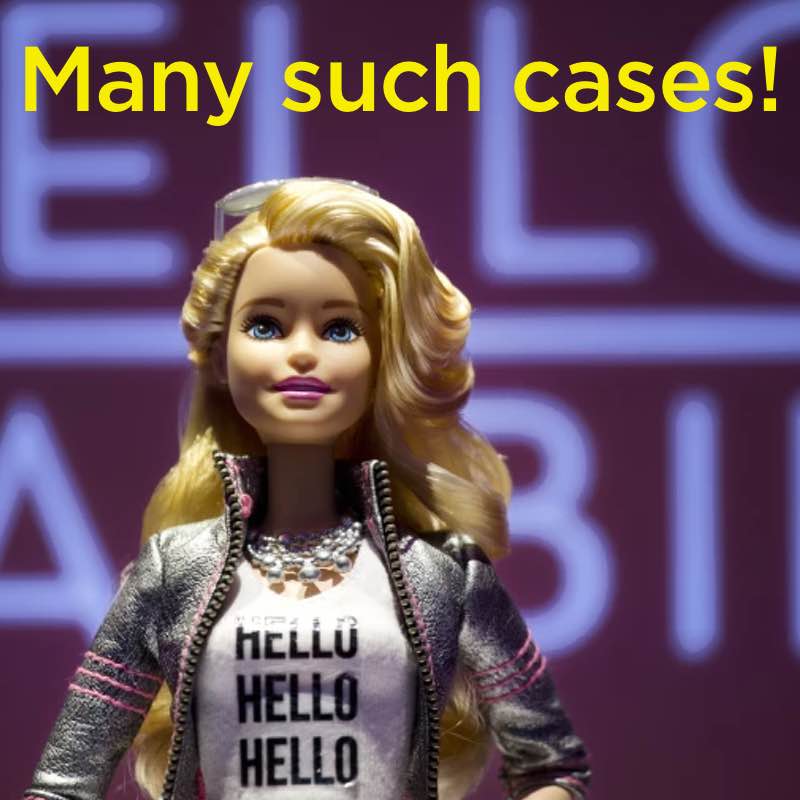
It's that time of year again for many American families. We're soon going to be loading up the SUV so we can drive down to our extended family's home, eat a picturesque Christmas dinner, argue about politics with our drunk uncle while watching horrible football, and exchange some overpriced gifts as we gather with family and friends to celebrate the birth of Jesus Christ. In past years, the biggest thing we had to worry about with the gifts is dealing with returns for gifts that people didn't like and wondering whether it was appropriate to throw the receipt in the box. In the present day, you also have to worry about your gifts betraying your family's privacy.
This situation was troubling years ago, but has gotten worse as time has gone on and web services and the IoT has become more prevalent. As an example, Mattel introduced its interactive "Hello Barbie doll" in 2015 but took it off of the market it after parents raised privacy concerns about the recordings it made of the children who spoke to it. In the current year, so called interconnected, "smart" products and services go far beyond this and often collect a boatload of data about their users and their surroundings. These pieces of location data can get sold off to location data brokers who compile and correlate your data to create a user profile of you, sell ads, and more. And sadly, even gadget manufacturers who genuinely pledge not to sell your data can cause you harm because data breaches can happen to even the most sophisticated firms.
Thinking through your Christmas Gift ideas to avoid problems makes sense. Checking to see if a toy or gadget connects to Wi-Fi or has Bluetooth is a good first step because without a connection, the number of ways you can be attacked are minimized. Another good tip is to check and see if a device has a a camera, a microphone, or other sensors. A device that can see and hear your environment might pose some issues and provide a target-rich environment to hackers. The word "smart" in a product description is also another dead giveaway that you might have a privacy problem: many modern TVs in particular have morphed into ad and data collection machines, which you can sidestep by looking into different classes of display devices such as computer monitors or projectors. It's ok if your refrigerator and toaster don't connect to an App: generations of your family managed without this just fine. But be wary, even things like the product registration and activating a warranty might betray your privacy in unknown ways.
If you want more info about how your gifts impact your privacy The Digital Standard Guide, Mozilla's Buyers Guide, and YourThings Scorecards along with reading the product reviews and seeing video reviews on sites like YouTube may help give you the critical information you need to keep your family safe. If like many of us you're still looking for some last minute gifts, check out our privacy-related gift list for some ideas. Enjoy your Christmas, Have a Happy Holiday Season, and Happy New Year. We hope 2022 will be even better for you than this year!
We hope you enjoyed reading this guide and learned something new! Check out our Learning Center to learn more about online privacy and security or consider subscribing to our Online Privacy Service to remove your phone number, name, and address from Google, Bing, Yahoo, and DuckDuckGo search results and hundreds of data broker sites.
